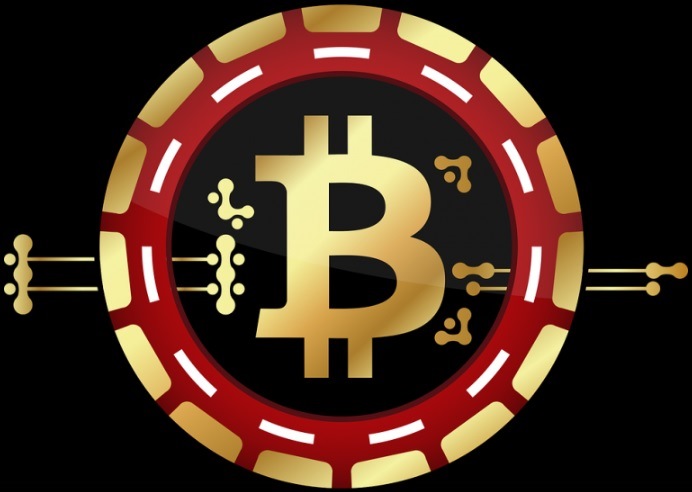- The Reviews
- UNIBET Review 2026
- MANSION Review 2026
- BETSAFE Review 2026
- BWIN Review 2026
- BETSSON Review 2026
- JETBULL Review 2026
- WILLIAM HILL Review 2026
- BET-AT-HOME Review 2026
- ZET Casino Review 2026
- CASINO.com Review 2026
- Mr GREEN Review 2026
- 888 Review 2026
- VEGAS CASINO ONLINE Review 2026
- LAS-VEGAS USA Casino Review 2026
- SUN PALACE Casino Review 2026
- ROYAL ACE Casino Review 2026
- PLANET 7 Casino Review 2026
- CLUB WORLD Casino Review 2026
- SILVER OAK Casino Review 2026
- Free Casino Games
US
- Best Online Casino Games Guide
- Choose Your Best Online Casino
- The Best Casino Games
- Online Card Games
- Best Online Machine Games
- Table Games
- Online Slots
- Complete Modern Online Blackjack Guide
- Free Blackjack Basic Strategy
- Simplified Blackjack Playing Strategy
- How to Play Blackjack Online Like Pros
- Advanced Blackjack Rules and Strategy
- Step-by-Step Blackjack Playing Procedures
- Blackjack Playing Options Guide
- Master Blackjack Card Counting
- Modern Blackjack Card Counters Challenge
- Which is the Best Blackjack Betting System?
- Nine-Count Blackjack Strategy Review
- Blackjack Myths and Errors
- Online Roulette
- Sportsbook
- Online Poker
- Online Video Poker
- Online Scratch Cards
- Online Bingo
- Online Baccarat
- Online Craps
- Asian Casino Games
- Online Keno
- Online Sic Bo
- Casino Bonuses
- Online Casino Reviews
- UNIBET Review, Casino, Sportsbook, Poker & Live Dealers
- BETSAFE Review, Casino, Poker, Live Dealers & Sportsbook
- MANSION Review, Casino, Sportsbook & Live Dealers
- BWIN Review, Sportsbook, Casino, Poker & Live Dealers
- BETSSON Review, Sportsbook, Casino, Live Dealers, Poker
- JETBULL Review -Casino, Sportsbook, Live Dealers
- BET_AT_HOME Review, Sportsbook, Casino, Poker, Live Dealers
- WILLIAM HILL Review -Casino, Sportsbook, Live Dealers, Poker
- ZET Casino Review
- Mr GREEN Review -Casino, Sportsbook & Live Dealers
- CASINO.com Review -Online Casino & Live Dealers
- Las-Vegas USA Casino Review
- Sun Palace Casino Review
- Royal Ace Casino Review
- Planet 7 Casino Review
- Club World Casino Review
- Vegas Casino Online Review
- Silver Oak Casino Review
- Free Casino Games
New Top Bitcoin Casino Sites features 2026
Two years ago, there were an estimated 896 Bitcoin and Blockchain companies in 12 categories across 74 countries with a total of $1.88 billion in funding.
This included Bitcoin casino sites start-ups, with $400,000 in funding on average, that offer gambling opportunities using Bitcoins as stakes, making gambling the least funded by venture investing across the sectors.
According to GoCoin, bitcoin casino sites account for approximately half of all Bitcoin transactions; however, these are small accounting for about 5% of the total transaction value of Bitcoins globally. Many online gambling sites have implemented Bitcoin as a way to make deposits and withdrawals, and this is being increasingly noted and reported by affiliate sites, which help consumers identify offshore sites.
Cozy Games became the first regulated Internet gambling operator to accept cryptocurrency payments. This is outsourced through a partnership with GoCoin which allows the use of Bitcoin and other cryptocurrencies on the 90 games that make up its platform.
Our Favorites Online Bitcoin Casinos
- Bonus Amount: $3,000 up to $10,000. The best daily bonuses on the internet.
- Games: An incredible number of slots, table games, and video pokers, including HTML5 games.
- Strong security protocols of 128-bit encryption
- Audited and guaranteed fair by TST
- Website: https://www.lasvegasusa.eu/casino/
- Established: 1999
- Software: Real Time Gaming (RTG)
- US and Canadians players supported
- Platforms Supported: Windows, Mac, iPhone, iPad, & Android.
- Type of Casino: Online & Instant or download.
- Free Slots Games: Yes
- Customer Support: 24/7 live chat support, as well as a toll-free phone number: +506-283-0061, and e-mail support
Write your review of Las-Vegas USA Casino
- Website: http://www.royalacecasino.eu
- Casino Type: download client, instant play, and mobile
- Software: Real Time Gaming (RTG)
- Owner: Emoney Processing Casinos LTD
- Established: 2009
- Casino Promotion: 100% Match Deposit Bonus up to $4,000, Daily and Weekly Bonuses
- Coupon Code: CASINO400
- Currencies: US$, Euros, Yen, Pounds, Bitcoin
- Mobile: both desktop and mobile compatibility
- VIP Program: 5 levels Available
- Support: World Class Support, 24/7 live chat & Toll-free phone number for USA and Canada
- Security: 128-bit SSL encryption
- Certified by: CDS (Central Disputes System)
- Languages: English
- License: Costa Rica
Write your review of Royal Ace Casino
- Bonus: 400% up to $10,000.
- Website: https://www.sunpalacecasino.eu/
- Software: Real Time Gaming (RTG)
- Deposit Methods: ClickandBuy, MasterCard, Money Order, Neteller, Visa Electron, instaDebit, Visa, MST Gift Card, Skrill, Bitcoin
- Withdrawal Methods: ACH, Cheque, Money Order, Neteller, Skrill
- Withdrawal Times: EWallets: 2-5 days, Credit / Debit Cards: 10-12 days, Bank Transfers: 7-12 days, Cheques: 21-28 days
- Pending Time: 3-7 days
- Withdrawal Limit: $5,000 per week
- Games: Incredible number of games of all types
- support: 24/7 through live chat, phone, or e-mail
- Support Response Time: 24 hours via email or Instant using Live Chat.
- Encryption: 128-bit SSL
- Audited and found fair by TST
- Languages: English.
- Progressive Jackpots: up to Million-Dollar.
- Restricted Countries: Bosnia, Costa Rica, Malaysia, Morocco, Netherlands, Russia.
Write a review of Sun Palace Casino
- Bonus: 320% Bonus + 45 Free Spins
- Casino Website: https://www.silveroakcasino.com/
- Casino Promotion: 320% Match Deposit Bonus up to $10,000 in 10 first deposits, up to $100 No Deposit Bonus, Weekly and Monthly Cashback, and much more.
- Casino Type: download client, instant play, mobile, and live dealers
- Software: Real Time Gaming (RTG)
- Live Casino: Available Live Dealers Casino
- Owner: Emoney Processing Casinos LTD
- Established: 2009
- Currencies: US$, Euros, Yen, Pounds, Bitcoin
- Mobile: both desktop and mobile compatibility
- VIP Program: 5 levels Available
- Support: World Class Support, 24/7 live chat & Toll-free phone number for USA and Canada
- Security: 128-bit SSL encryption
- Certified by: CDS (Central Disputes System)
- Languages: English
- License: Costa Rica
Write your review of Silver Oak Casino
- Bonus: First Deposit 350% Bonus + 25 Free Spins
- Website: https://www.planet7casino.com/
- Casino Type: download client, instant play, mobile, and live dealers
- Software: Real Time Gaming (RTG)
- Live Casino: Available Live Dealers Casino
- Owner: Emoney Processing Casinos LTD
- Established: 2008
- Casino Promotion: 200% Match Deposit Bonus up to $4,000, and much more.
- Currencies: US$, Euros, Yen, British Pounds, Bitcoin
- Mobile: both desktop and mobile compatibility
- VIP Program: Available
- Support: World Class Support, 24/7 live chat & Toll-free phone number for USA and Canada
- Security: 256-bit SSL encryption
- Certified by: CDS (Central Disputes System)
- Languages: English
- License: Costa Rica, Cyprus, the United Kingdom, and the Netherlands.
Write a review of Planet 7 Casino
- Bonus: Get 300% Match up to $3000 FREE Welcome Bonus
- Website: https://www.clubworldcasinos.com
- Software: Real Time Gaming (RTG)
- Mobile: Android, iPhone, iPad
- Casino Type: Download, Instant Play, Mobile
- Currency: US dollars
- Language: English
- License: Curacao
- Owner: Club World Casinos Group Casinos
- Established: 2005
- Audit: RTP Not publicly audited
- Currency: US dollars
Write a review of Club World Casino
- Bonus: Get 300% Match up to $3000 FREE Welcome Bonus
- Website: https://vegascasinoonline.eu/
- Established: 1999
- Software: Real Time Gaming (RTG)
- Currencies: US$
- US and Canadians players: supported
- Bonus Amount: up to $11,000 Match Bonus
- Platforms Supported: Windows, Mac, iPhone, iPad, & Android.
- Type of Casino: Download & Online Instant Play.
- Free Slots Games: Yes
- Owner: Main Street Vegas Group Casinos
- License: Costa Rica
- US Customer Support: (877) 691-5124
- Canada Customer Support: (888) 387-6717
- Email Address: [email protected]
- Live Chat: Yes
- Response Time: 24 hours via email or Instant using Live Chat.
- Languages: English.
- Progressive Jackpots: up to 1 Million-Dollar.
Write a review of Vegas Casino Online
The New Bitcoin Casino Sites
Bitcoin Casino sites integrate its player identity verification procedures within the gambling operators’ platform, thus allowing player identification, a requirement of the Isle of Man Gambling Commission, while maintaining privacy.
This is an example of how legitimate gambling companies can incorporate Blockchain technology and reach new markets while lowering transaction costs. One of the most established games is Satoshi Dice, a Bitcoin dice betting game transformed into a Bitcoin casino that provides slot games and allows players to act as the house by betting on a shared bankroll.
They claim that over four million Bitcoins have been won with over six million individual Blockchain bets placed and to allow payouts of up to 64,000 per bet with a house edge of only 1.9%.
The site is licensed by the Government of Curaçao and states that users must be over the age of 18 to play. It was launched in 2012 and sold for USD$11.5 million in 2013. Edgeless Casino is designed to run on the Ethereum Blockchain with all operations based on smart contracts.
The intention is for users to have a transparent experience and for all games to act how they are supposed to. SoftSwiss online casino has seen daily Blockchain transactions grow from 100 to over 250,000 per day from 2009 to 2016. In 2016, Bitcoin to USD transactions grew from 400 to 1,000.
Virtue Poker is an online poker application that uses the Ethereum Blockchain to hold funds in escrow until the game ends. When players commence a game, they put their funds (using cryptocurrency) into a smart contract, where it is held for the duration of the game.
Funds are distributed to the appropriate winner at the end of the tournament. The cards are shuffled and encrypted by player’s own computers with appropriate permissions shared so that the cards can be dealt and the community cards can be seen by all players.
This architecture allows play between unknown players with trust for games with high stakes online. Operators or other players cannot interfere with the cards or funds, reducing the risk of fraud and cheating. Finally, eSports betting sites Unikrn now has its own cryptocurrency, Unikoin Gold, which will sit on the Ethereum Blockchain as a genuine cryptocurrency, which can be bought, sold, and traded on digital currency exchanges that deal with Ethereum.
Casino Games Blog 2026
The Bitcoin Casino Guide
Casino Sites accepting Bitcoin
Blockchain protocols have innovative features that have the potential to transform the online gambling industry. Blockchain allows permanent records, are highly secure, provide a layer of anonymity as well as transparency, removes the need for intermediaries, includes validation and authentication mechanisms, and allows provably fair and trusted transactions.
Blockchain and cryptocurrencies have not been widely adopted to date and may remain too complicated now for use by most consumers and businesses. Currently, high-level technical knowledge is needed to work with Blockchain.
However, this barrier has been true for most technological innovations, which continue evolving to overcome challenges and expand until a tipping point is reached. For example, the transformative potential of the Internet was realised after the creation of web browsers.
Initially lack of understanding and knowledge of the Internet’s capacity, privacy concerns, and security issues represented serious challenges and barriers to widespread acceptance. Thirty years hence, the Internet has become an integral, essential, and commonplace resource to everyday commerce and social exchanges.
Nonetheless, Blockchain technology still faces some significant limitations. Compared to existing transaction processing networks, the Bitcoin network has a very limited processing rate (7 transactions per second vs 2,000-10,000 for VISA). Transactions take approximately 10 minutes to be confirmed and download times are slow.
However, technology is being developed that would greatly increase the capacity of transaction processing. Although the nature of the decentralized network means it is highly unlikely that an attack could occur, hacks have been attempted and security issues may arise. In particular, where Blockchain intersects with intermediaries, such as online exchanges, apps, and websites, hacks or other security breaches may occur.
It will take a significant passage of time and popular acceptance for Blockchain to evolve into a universally adopted platform replacing traditional commerce and finance. Iansiti and Lakhani suggest a quadrant or matrix describing the potential path of transition from single use, to localization of use within a defined community, to broader and increasing public usage, to final transformation and widespread adoption.
Nonetheless, early adopters who understand the many advantages of Blockchain are likely to engage with this¸ including established companies and institutions. Further, it is not necessary for consumers to have a technical understanding of the mechanics of Blockchain to use this, for example, mainstream wallets and exchanges are already available.
However, an easy-to-use consumer interface is needed before Blockchain can move from the proof-of-concept phase of development. To go beyond pilots and start-ups, Blockchain needs to have a system of transparent governance and the involvement of trusted organizations to give others confidence.
Morgan Stanley concur that regulation and government acknowledgment is needed for Bitcoin to reach mainstream acceptance. With a widespread lack of specific regulation and policy concerning Blockchain with regards to gambling, it is likely that there will be many innovative and experimental attempts to incorporate this technology into the provision of gambling.
If Blockchain gambling solves existing problems for consumers, such as increasing return to player and ensured integrity of games and payments, this may increase engagement with this technology. Blockchain is not just about anonymous cryptocurrencies and faster payouts.
It is part of a rapidly growing ecosystem of advanced technologies that will play a fundamental role in the future of commerce and society.
Accordingly, it is predicted that Blockchain will form a strong foundation for gambling opportunities and transactions that will in some way impact regulators, either generating novel approaches to regulatory and compliance issues, or through mass collaboration, eliminate the need for regulators in a self-governing system.
Was This Helpful?
Recommend us on Facebook










